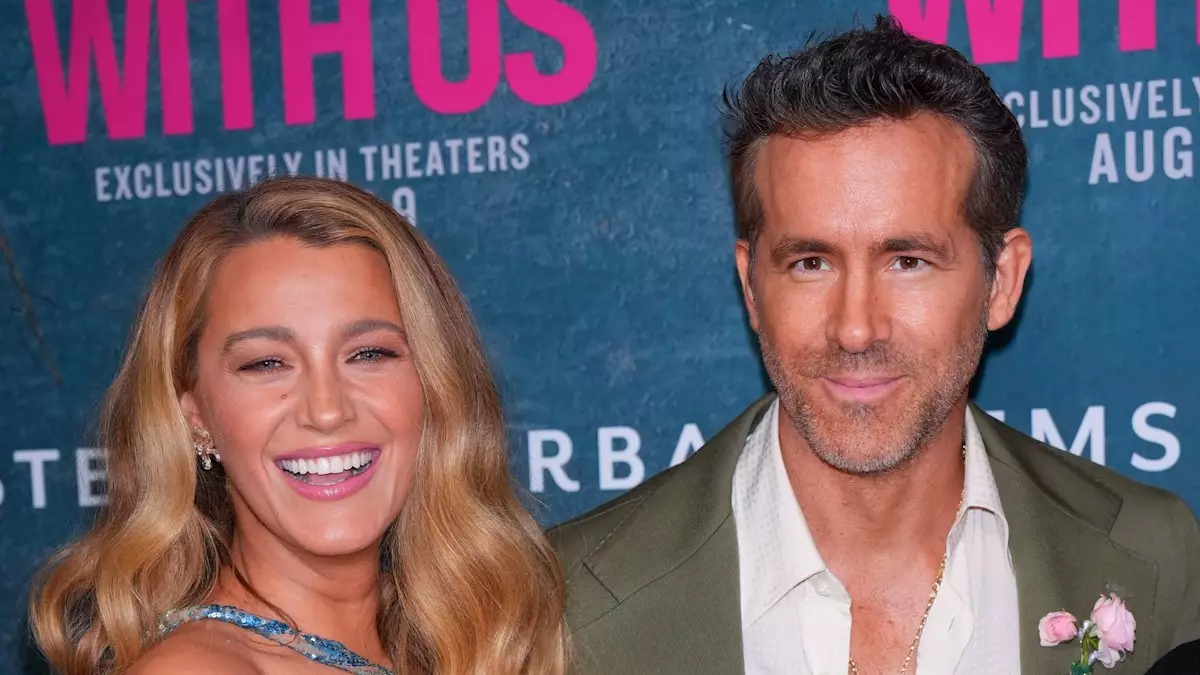Blake Lively’s journey through the tumultuous waters of Hollywood is a testament to resilience and the often-public struggle artists face while balancing their careers with personal integrity. This summer, the actress found herself under the media microscope, celebrating her new movie adaptation of Colleen Hoover’s novel “It Ends with Us.” However, the movie’s promotional rollout was not met with universal acclaim, leading to a wave of online scrutiny and backlash that forced Lively to take a step back from her usual social media presence.
After a hiatus from social media—where Lively only shared a handful of Instagram Stories—she re-emerged to introduce her new haircare line, Blake Brown Beauty. This brand launch coincided with the film’s release, aiming to channel the creative energy into a venture that aligns with her personal aesthetic. In a playful post, she showcased images from her brand’s first campaign, sporting a chocolate brown coat over classic blue jeans—a look that embodies both elegance and casual sophistication. The light-hearted caption, in which she joked about not having a shirt or a hairbrush, reflected her desire to take control of the narrative surrounding her work.
Lively’s comments section remains disabled, a strategic choice amid the backlash she faced, yet her husband Ryan Reynolds showed his unwavering support by liking her post. The couple, who share four children, including a newborn son, continue to be a noteworthy pair in Hollywood, reflecting a blend of love and professionalism in an industry notorious for its challenges.
At the heart of the criticism directed towards Lively was her marketing strategy for “It Ends with Us,” a film entrenched in the heavy themes of domestic violence. While the film aimed to raise awareness about intimate partner violence, many fans felt that Lively’s simultaneous promotion of her personal brands detracted from the film’s serious messages. This sentiment was compounded by rumors of a rift between Lively and her co-star and director, Justin Baldoni, who was seen promoting the film separately from the cast. Such dynamics can often lead to speculation in the entertainment industry, where public perception can quickly spiral out of control.
Additionally, past interviews featuring Lively were brought back into the spotlight, further fuelling criticism and misinterpretation of her intentions. Though she opted for silence in the face of this negative feedback, she eventually addressed the film’s themes directly on Instagram, emphasizing the importance of sharing stories that resonate with the female experience. In her statement, she highlighted statistics that reveal the significant prevalence of intimate partner violence, demonstrating her commitment to bringing awareness to these crucial societal issues.
Navigating backlash in the public eye underscores the complexity of modern fame, especially for women in Hollywood. Lively’s struggle illustrates how quickly admiration can turn to critique, emphasizing the delicate balance public figures must maintain. With her ability to pivot from film promotion to launching her beauty line, she showcased an entrepreneurial spirit despite external pressures. This adaptability is not merely a business decision but a necessary evolution for many artists who find themselves under scrutiny.
As Lively continues to champion causes close to her heart while managing her growing family and professional endeavors, her experience serves as a poignant reminder of the importance of empathy in conversations surrounding public figures. While backlash can erupt quickly and unexpectedly, it is essential to recognize the intentions behind their actions and to engage in constructive discussions around their roles and contributions in the industry.
Blake Lively’s experience this summer—while marked by controversy—profoundly reflects the complexities associated with fame, the importance of storytelling in cinema, and an undeterred commitment to growth, both personally and professionally.

Leave a Reply